Optimitron is an AI assistant that asks you about your symptoms and potential factors. Then she applies pharmacokinetic predictive analysis to inform you of the most important things you can do to minimize symptom severity.
¶ Click Here for Demo Video
¶ Or Try the Demo Here
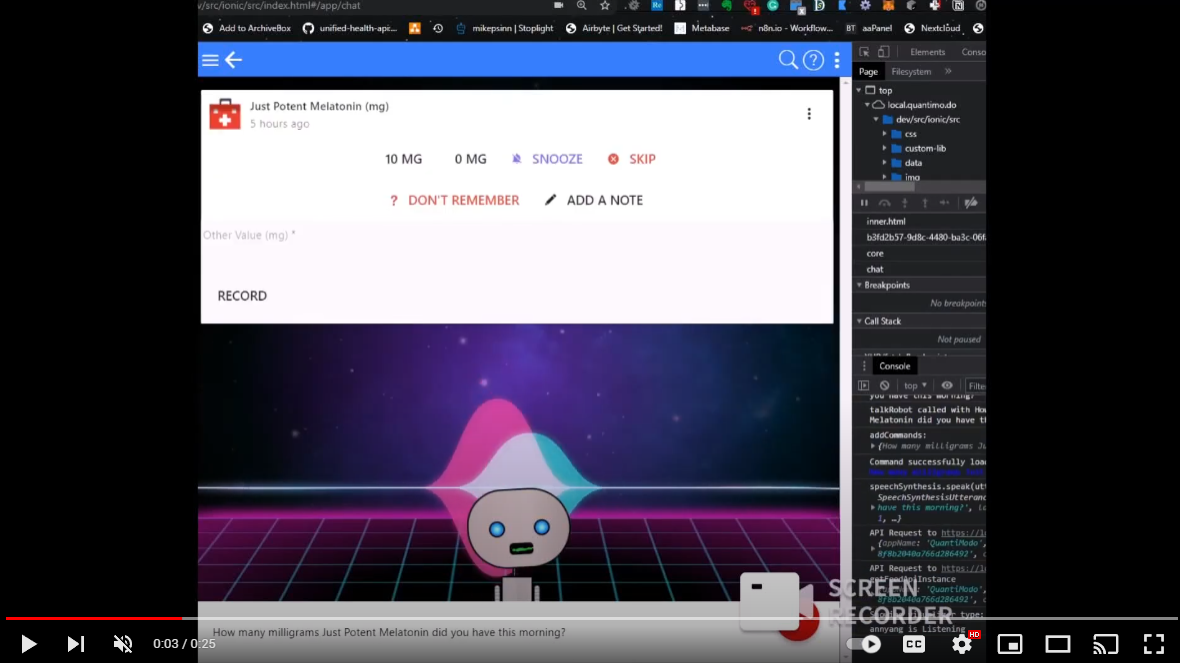
A half-billion people suffer from autoimmune diseases like Crone's disease, psoriasis, and Fibromyalgia. There’s also a great deal of mounting evidence that treatment-resistant depression and other mental illnesses are strongly related to immune dysregulation. What all these diseases have in common is that they can be exacerbated or improved by hundreds of factors in daily life.
Probably the most significant is the 3 pounds of thousands of chemicals that we consume every day through our diets. Since the thousands of chemicals in our food have been GRAS or “Generally Recognized as Safe” by the FDA, there’s no incentive to do research.
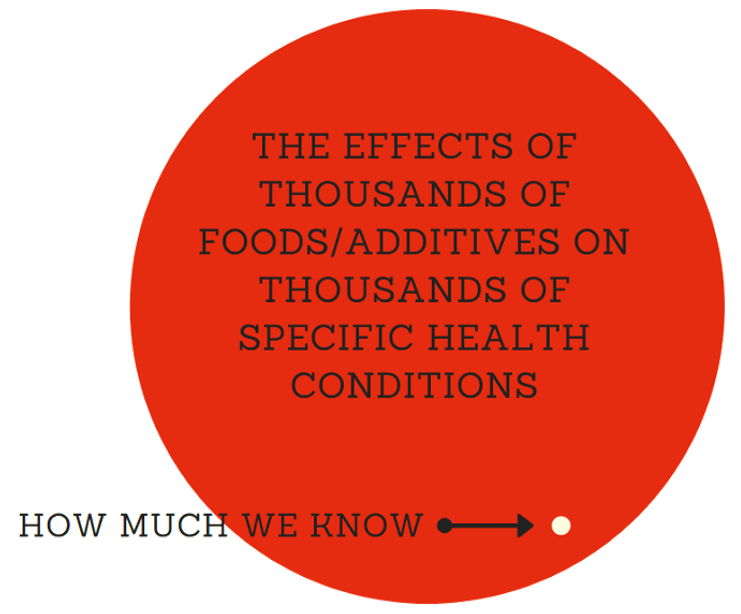
We've built a connector framework that imports data on diet, physical activity, sleep, social interaction, environmental factors, symptom severity, vital signs, and others.
Then we apply pharmacokinetic predictive analysis that accounts for onset delays and durations of action. This enables her to obtain personalized effectiveness values (similar to recommended daily values) for treatments and reveal potential root causes of chronic conditions.
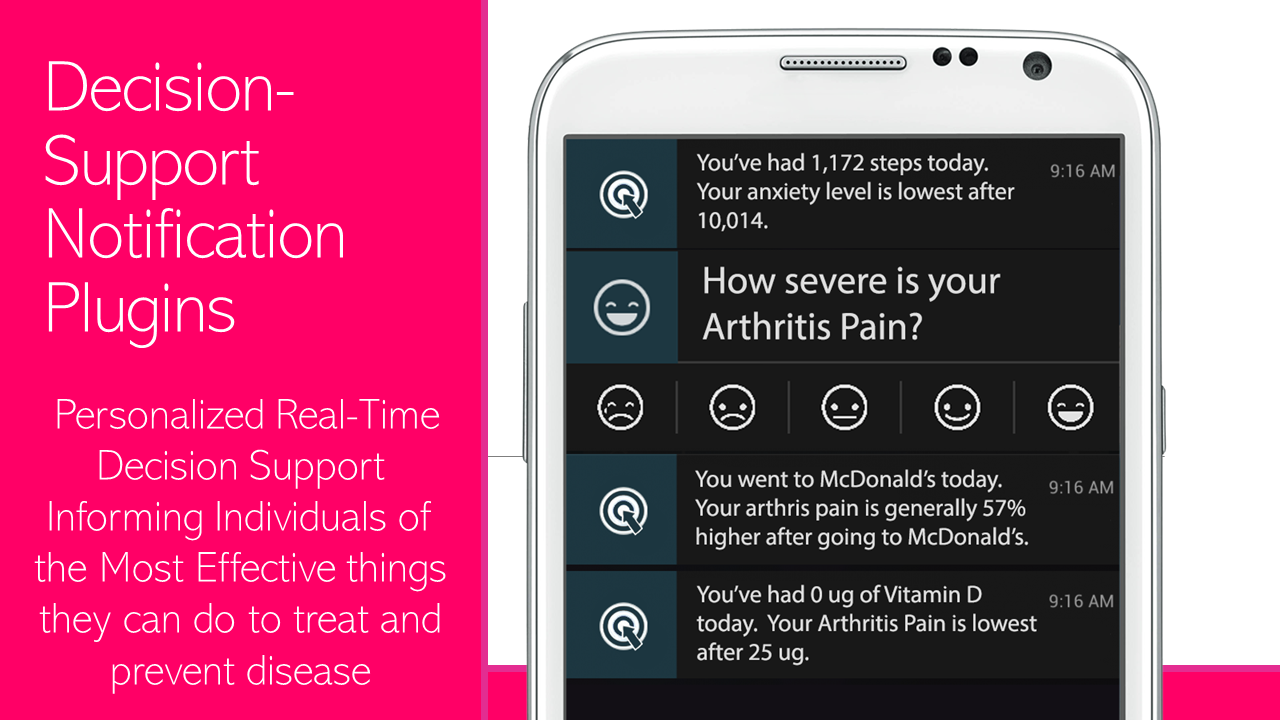
The accuracy of the results obtained from quasi-experimental techniques and observational data is highly dependent on the quantity and quality of the data. To maximize the amount of available data, we're currently creating a decentralized autonomous organization called CureDAO. Its mission is to create an open-source platform for crowd-sourced clinical research. It incentivizes collaboration and data sharing by competing entities by issuing non-fungible tokens to any contributor of intellectual property or data.
Contributors of data and intellectual property will receive ongoing royalties for their contributions linked to their non-fungible tokens.
¶ Longevitron: A Real-Life Robot Programmed to Maximize Health and Happiness
Opening an app to record your symptoms, diet, or treatment sucks. Our dream is to turn this web-based robot into a physical reality. Longevitron is a robot that can follow you around and reminds you to take your medication, what and when to eat, track your symptoms, and even contribute your data to clinical trials.
We're looking at various implementation options here, but Loona below is an example of one such robot that could include such functionality. Loona has visual and auditory emotion recognition and speech recognition that allows you to converse with AI large language models such as ChatGPT.

¶ Features of Longevitron
- Medication and Meal Reminders and Tracking: Longevitron will remind you to take your medication and eat at the right times, ensuring you never miss a dose or meal. It will also ask you what you took or consumed or use its camera to scan UPC codes or use visual recognition to allow you to record this data without opening an app.
- Symptom Tracking: Longevitron will regularly ask about your symptoms and record them, helping you track changes over time and providing valuable data for your healthcare provider.
- Data Aggregation and Contribution to Clinical Trials: With your permission, Longevitron can aggregate your health data and contribute it to clinical trials, helping to advance medical research.
- Prioritization and Scheduling: Longevitron will ask about your priorities and create a personalized schedule, providing reminders to help you stay on track.
- Life Optimization: Longevitron will analyze your health data and provide recommendations to help you optimize your life, whether that means improving your sleep, diet, exercise, or other factors.
¶ Predictive Control Models for Personalized Health Optimization
¶ Data Collection and Analysis
Longevitron collects data on various factors that can influence your health, from your diet and exercise habits to your sleep patterns and stress levels. It also asks for patient-reported outcomes, such as how you're feeling and any symptoms you're experiencing.
¶ Adaptive Intervention and Predictive Control Models
This data is fed into a predictive control model system, a concept borrowed from behavioral medicine and control systems engineering. This system uses the data to continually refine its suggestions, helping you optimize your health and well-being.
Adaptive intervention is a strategy used in behavioral medicine to create individually tailored strategies for the prevention and treatment of chronic disorders. It involves intensive measurement and frequent decision-making over time, allowing the intervention to adapt to the individual's needs.
Predictive control models are a control system that uses data to predict future outcomes and adjust actions accordingly. In the context of Longevitron, this means using the data it collects to predict your future health outcomes and adjust its suggestions to optimize your health.
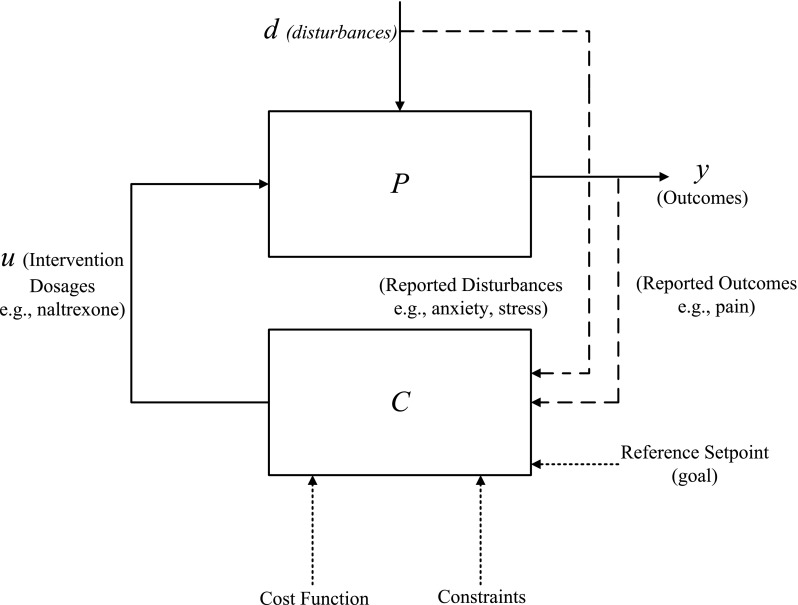
¶ Real-Life Application and Benefits
Consider a hypothetical scenario where you're dealing with a chronic condition like fibromyalgia. Longevitron would collect data on your symptoms, medication intake, stress levels, sleep quality, and other relevant factors. It would then feed this data into its predictive control model system, which would use it to predict your future symptoms and adjust your treatment plan accordingly.
This could involve suggesting changes to your medication dosage, recommending lifestyle changes, or even alerting your healthcare provider if it detects a potential issue. The goal is to optimize your health and well-being based on your needs and circumstances.
¶ Longevitron: Overcoming the Bottleneck in Personalized Preventative Medicine
The future of personalized preventative medicine hinges on the ability to collect high-frequency data on diet, lifestyle, and medical interventions. This data is crucial for causal inference, which is the process of determining the cause-and-effect relationships that drive individual health outcomes. However, collecting this data has been a significant bottleneck in the field.
¶ Passive and Active Data Collection
The future of personalized preventative medicine depends on the ability to collect high-frequency data on diet, lifestyle, and medical interventions. This data is crucial for causal inference, which is the process of determining the cause-and-effect relationships that drive individual health outcomes. However, collecting this data has been a significant bottleneck in the field.
¶ The Power of Passive Data Collection
Various sensors allow it to collect data passively on various health-related factors. For example, it could use
- motion sensors to track your physical activity levels
- environmental sensors, such as this electronic nose, to
- monitor the air quality in your home
- potentially record diet from the odor of foods
- possibly detect body odors associated with specific states of health

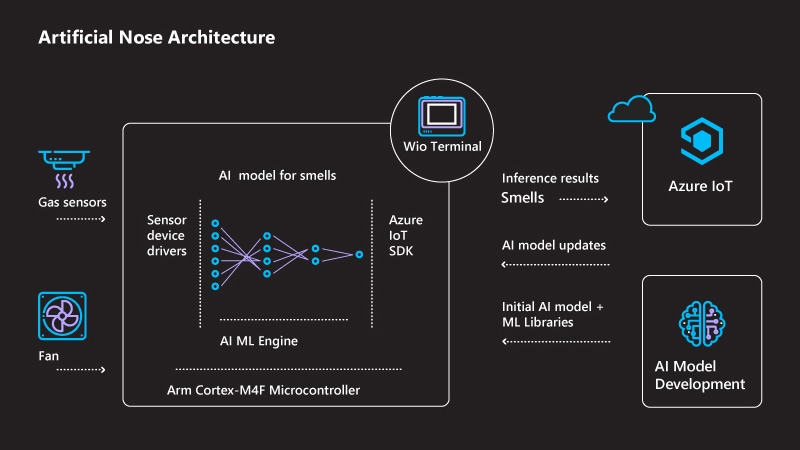
This passive data collection is done continuously and unobtrusively, providing a wealth of information without requiring any effort.
¶ Active Data Collection and Interaction
In addition to passive data collection, Longevitron actively interacts with you to gather more detailed information. For instance, it could ask you
- what you ate or drank whenever you walked into the kitchen
- remind you to exercise or ask you if you completed your exercise
- remind you to take your medicine and ask if you've taken it
Gut Microbiome Health and Water Intake
Longevitron could also ask you to describe your bowel movements or urine hue, as these can be major health indicators. The Bristol stool form scale (BSFS), which categorizes the form of stool, can be used as an assessment tool for the diagnosis of various bowel diseases or evaluation of treatment efficacy.
¶ Overcoming the Bottleneck in Personalized Preventative Medicine
By combining passive and active data collection, Longevitron overcomes the bottleneck in personalized preventative medicine. It collects high-frequency data on diet, lifestyle, and medical interventions, enabling causal inference on an individual level. This allows Longevitron to determine the cause-and-effect relationships that drive individual health outcomes and use this information to provide personalized health recommendations.
¶ Enabling AI Alignment
One of the most exciting aspects of Longevitron is its potential to contribute to the development of AI alignment - ensuring that AI systems act in ways that benefit humans.
¶ Personal Digital Twin AI Models
Longevitron is designed to collect a wealth of data on individual health, happiness, and stated human preferences. This data can be used to:
- Develop personal digital twin AI models
- Create highly accurate simulations of individual humans
- Predict individual preferences and responses in a variety of situations
Preferences could be encrypted and stored in a personal Digital Twin Safe.
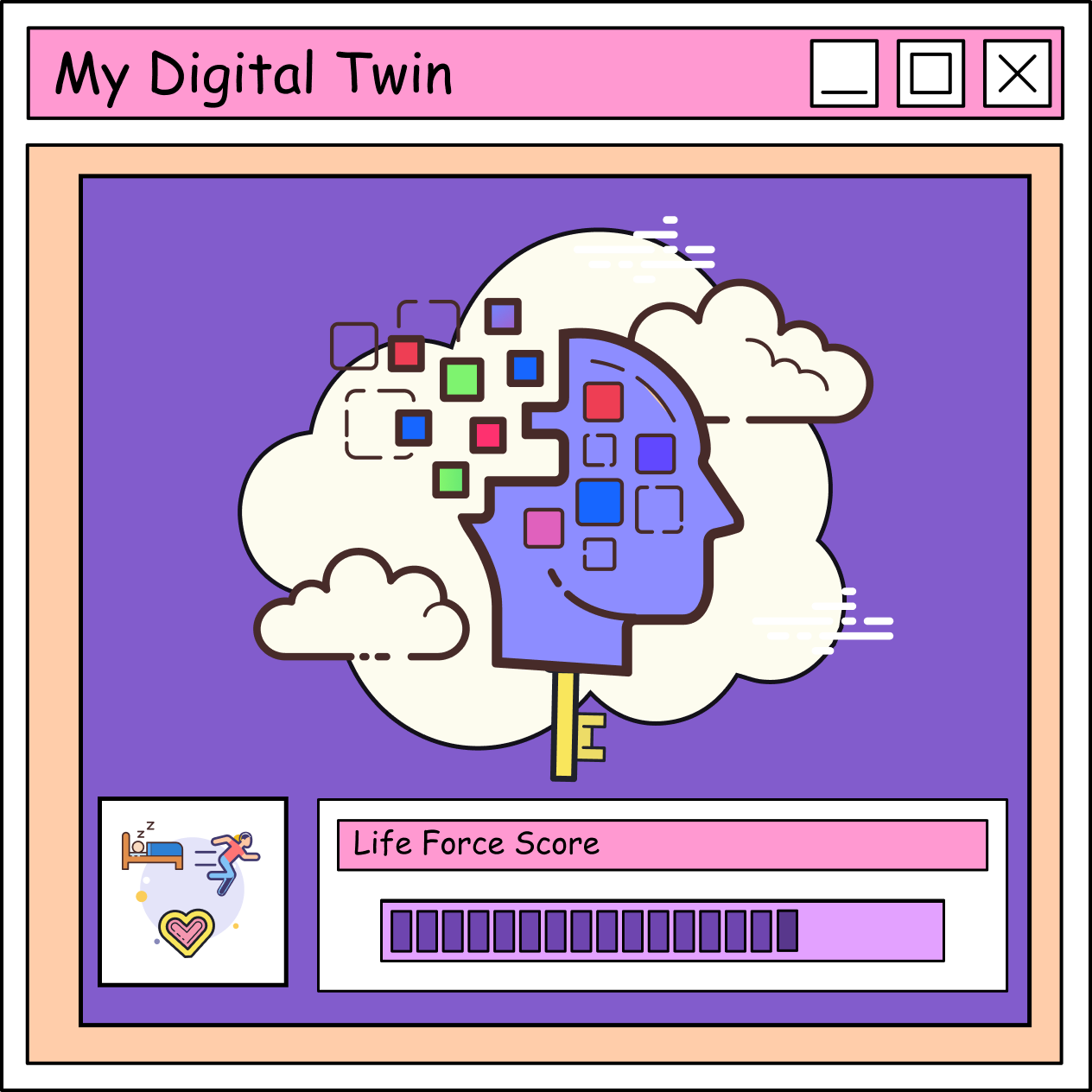
¶ Informing a Global AI Safety Bot
These personal digital twin AI models can, in turn, be used to inform a global AI safety bot. This bot could:
- Have a comprehensive understanding of human preferences on an individual and collective level
- Make decisions that are highly aligned with human values
¶ Intervention and Deactivation of Malevolent AI Agents
Moreover, the global AI safety bot could use this understanding to:
- Intervene in situations where AI agents are acting in ways that are potentially harmful to humans
- Deactivate malevolent AI agents, preventing harm and ensuring that AI technology is used beneficially
By supporting Longevitron, you're not just investing in a personal health assistant - you're also contributing to the future of AI safety and alignment. Your support will help us make this vision a reality, improving the lives of people around the world and ensuring that AI technology is used in a way that is beneficial to all.
¶ How You Can Help
- Please help us compile this list of existing robots that could be used as a basis for Longevitron.
- Fork and contribute to the platform
- Build it! Tell us about your project here so we can help!
¶ Links
- SunilDeshpande_S2014_ETD.pdf (asu.edu)
- LocalControl: An R Package for Comparative Safety and Effectiveness Research | Journal of Statistical Software (jstatsoft.org)
- bbotk: A brief introduction (r-project.org)
- artemis-toumazi/dfpk (github.com)
- miroslavgasparek/MPC_Cancer: Model Predictive Control for the optimisation of the tumour treatment through the combination of the chemotherapy and immunotherapy. (github.com)
- Doubly Robust Learning — econml 0.12.0 documentation
- A control systems engineering approach for adaptive behavioral interventions: illustration with a fibromyalgia intervention (nih.gov)
- The promise of machine learning in predicting treatment outcomes in psychiatry - Chekroud - 2021 - World Psychiatry - Wiley Online Library
- CURATE.AI: Optimizing Personalized Medicine with Artificial Intelligence - Agata Blasiak, Jeffrey Khong, Theodore Kee, 2020 (sagepub.com)
- Using nonlinear model predictive control to find optimal therapeutic strategies to modulate inflammation (aimspress.com)
- Forecasting Treatment Responses Over Time Using Recurrent Marginal Structural Networks (nips.cc)
- Estimating counterfactual treatment outcomes over time through adversarially balanced representations | OpenReview
- https://dash.harvard.edu/bitstream/handle/1/37366470/AGUILAR-SENIORTHESIS-2019.pdf?isAllowed=y&sequence=1